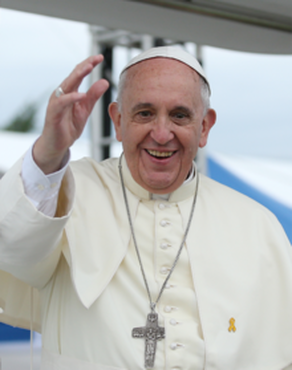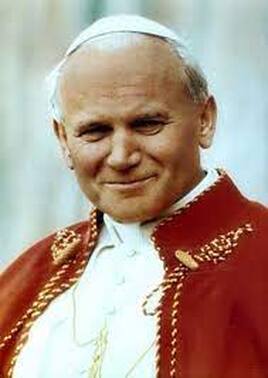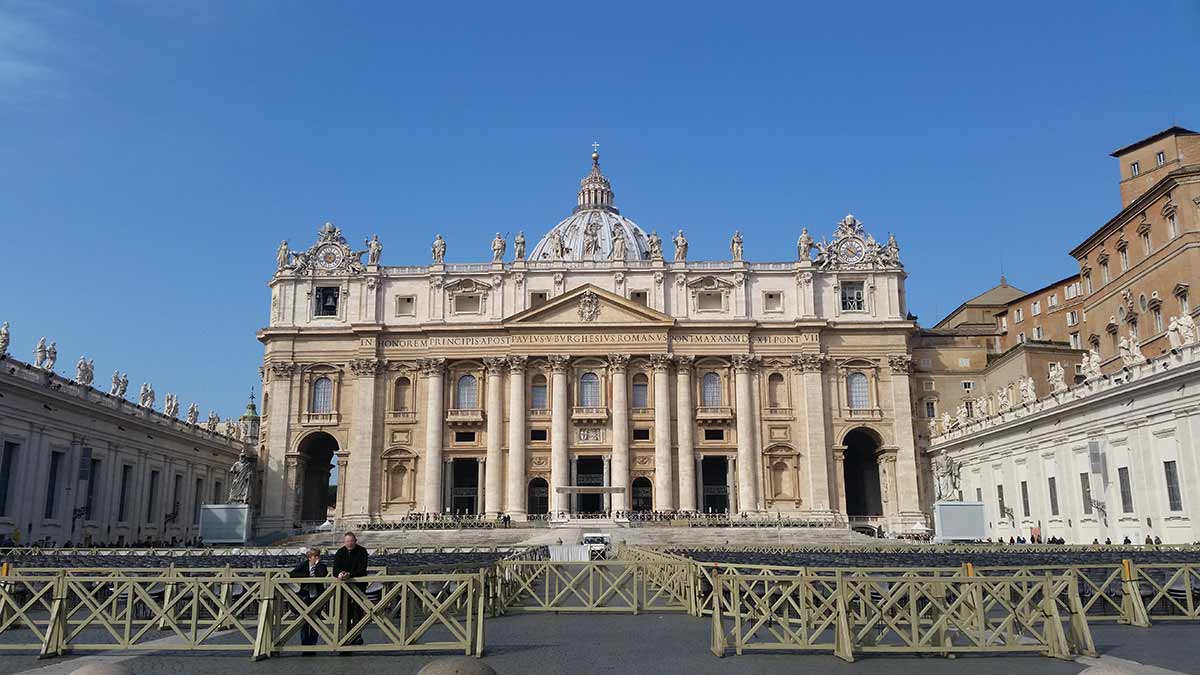MESSAGE OF THE HOLY FATHER FRANCIS
30th anniversary of the World Day of the Sick
"Be merciful as your Father is merciful" (Luke 6:36)
"Be merciful as your Father is merciful" (Luke 6:36)
11 February 2022, London, UK: On the 30th anniversary of the World Day of the Sick, St Francis Leprosy Guild urges its supporters and the wider Catholic community to read the message of the Holy Father Pope Francis.
Dear brothers and sisters, thirty years ago, St John Paul II instituted the World Day of the Sick to sensitise the People of God, Catholic health institutions and civil society to the need to assist the sick and those who care for them. |
Merciful as the Father |
Jesus, mercy of the Father
The supreme witness of the Father's merciful love for the sick is his only begotten Son. How many times do the Gospels tell us of Jesus' encounters with people suffering from various diseases! He "went throughout Galilee teaching in the synagogues of the Jews, proclaiming the Good News of the Kingdom and healing all the diseases and infirmities of the people" (Matthew 4:23). We can ask ourselves: why does this particular attention of Jesus towards the sick, to such an extent that it also becomes the main work of the mission of the apostles, sent by the Master to proclaim the Gospel and to heal the sick? (cf. Luke 9:2).
A twentieth-century thinker suggests a motivation: "Pain completely isolates and it is from this absolute isolation that the call to the other arises, the invocation to the other". When a person experiences in his own flesh the fragility and suffering because of illness, his heart is also saddened, fear grows, questions multiply; finding an answer to the question about the meaning of everything that happens is becoming more and more urgent. How can we not remember, in this regard, the many patients who, during this time of pandemic, have lived in the solitude of an intensive care unit the last stage of their existence cared for, without a doubt, by generous health agents, but far from their loved ones and the most important people in their earthly life. Here, then, is the importance of having the presence of witnesses of God's charity who pour out on the wounds of the sick the oil of consolation and the wine of hope, following the example of Jesus, mercy of the Father.
Touching the suffering flesh of Christ
Jesus' invitation to be merciful as the Father takes on particular significance for health workers. I am thinking of the doctors, the nurses, the laboratory technicians, the staff in charge of assisting and caring for the sick, as well as the many volunteers who donate precious time to those who suffer. Dear health workers, your service at the side of the sick, carried out with love and competence, transcends the limits of the profession to become a mission. His hands, which touch the suffering flesh of Christ, can be a sign of the father's merciful hands. Be aware of the great dignity of your profession, as well as the responsibility that comes with it.
Let us bless the Lord for the progress that medical science has made, especially in recent times. New technologies have made it possible to develop treatments that are very beneficial for sick people; research continues to make its valuable contribution to eradicating old and new diseases; rehabilitation medicine has significantly developed its knowledge and skills. All this, however, should not make us forget the uniqueness of each sick person, with his dignity and his frailties. The patient is always more important than his disease and that is why each therapeutic approach cannot do without listening to the patient, his history, his anguish and his fears. Even when it is not possible to cure, it is always possible to care, it is always possible to comfort, it is always possible to make you feel a closeness that shows interest in the person rather than in his pathology. That is why I hope that vocational training will enable health workers to know how to listen and relate to the patient.
Health care centers, houses of mercy
The World Day of the Sick is also a propitious occasion to focus our attention on health care centres. Over the centuries, mercy towards the sick has led the Christian community to open innumerable "inns of the Good Samaritan", to welcome and cure sick people of all kinds, especially those who could not find an answer to their health needs, due to poverty or social exclusion, or because of difficulties in treating certain pathologies. In these situations it is above all children, the elderly and the most fragile who suffer the worst consequences. Many missionaries, merciful as the Father, accompanied the proclamation of the Gospel with the construction of hospitals, dispensaries and health centers. They are valuable works by which Christian charity has taken shape and the love of Christ, witnessed to by his disciples, has become more credible. I am thinking above all of the inhabitants of the poorest areas of the planet, where you sometimes have to travel long distances to find health care centres which, despite having limited resources, offer everything they have at their disposal. There is still a long way to go and in some countries receiving proper treatment is still a luxury. This is demonstrated, for example, by the lack of availability of vaccines against the Covid-19 virus in the poorest countries; but even more the lack of treatments for pathologies that require much simpler medications.
In this context, I wish to reaffirm the importance of Catholic health institutions: they are a precious treasure that must be guarded and sustained; his presence has characterized the history of the Church by its closeness to the poorest sick and to the most forgotten situations. How many founders of religious families have heard the cry of brothers and sisters who did not have access to health treatments or who were not well cared for and have given themselves to their service! Even today, even in the most developed countries, their presence is a blessing, because they can always offer, in addition to the care of the body with all the necessary expertise, also that charity thanks to which the sick and their families occupy a central place. At a time when the throwaway culture is widespread and life is not always recognized for the dignity of being welcomed and lived, these structures, like houses of mercy, can be an example in the protection and care of all existence, even the most fragile, from its conception to its natural end.
Pastoral mercy: presence and closeness
Throughout these thirty years the indispensable service performed by the pastoral care of health has been increasingly recognized. If the worst discrimination suffered by the poor – and the sick are poor in health – is the lack of spiritual attention, we cannot fail to offer them the closeness of God, his blessing, his Word, the celebration of the sacraments and the proposal of a path of growth and maturation in the faith. In this regard, I would like to recall that closeness to the sick and their pastoral care is not only the task of some ministers specifically dedicated to it; Visiting the sick is an invitation that Christ makes to all his disciples. How many sick and how many elderly people live in their homes and wait for a visit! The ministry of consolation is the responsibility of every baptized person, aware of the word of Jesus: "I was sick and they visited me" (Matthew 25:36).
Dear brothers and sisters, I entrust all the sick and their families to the intercession of Mary, Health of the Sick. May they, united with Christ, who carries upon himself the pain of the world, find meaning, comfort and trust. I pray for all health workers that, full of mercy, they may offer patients, in addition to appropriate care, their fraternal closeness. To all of you I impart with affection the Apostolic Blessing.
Rome
St John Lateran
December 10, 2021
Memory of the Blessed Virgin Mary of Loreto.
Francis
For other information or interviews please contact:
Clare McIntosh
Chief Executive Officer
St Francis Leprosy Guild
London W10 6EJ
Tel: +44 (0)7754 592240
Email: [email protected]
Twitter @StLeprosy
Facebook
Clare McIntosh
Chief Executive Officer
St Francis Leprosy Guild
London W10 6EJ
Tel: +44 (0)7754 592240
Email: [email protected]
Twitter @StLeprosy







